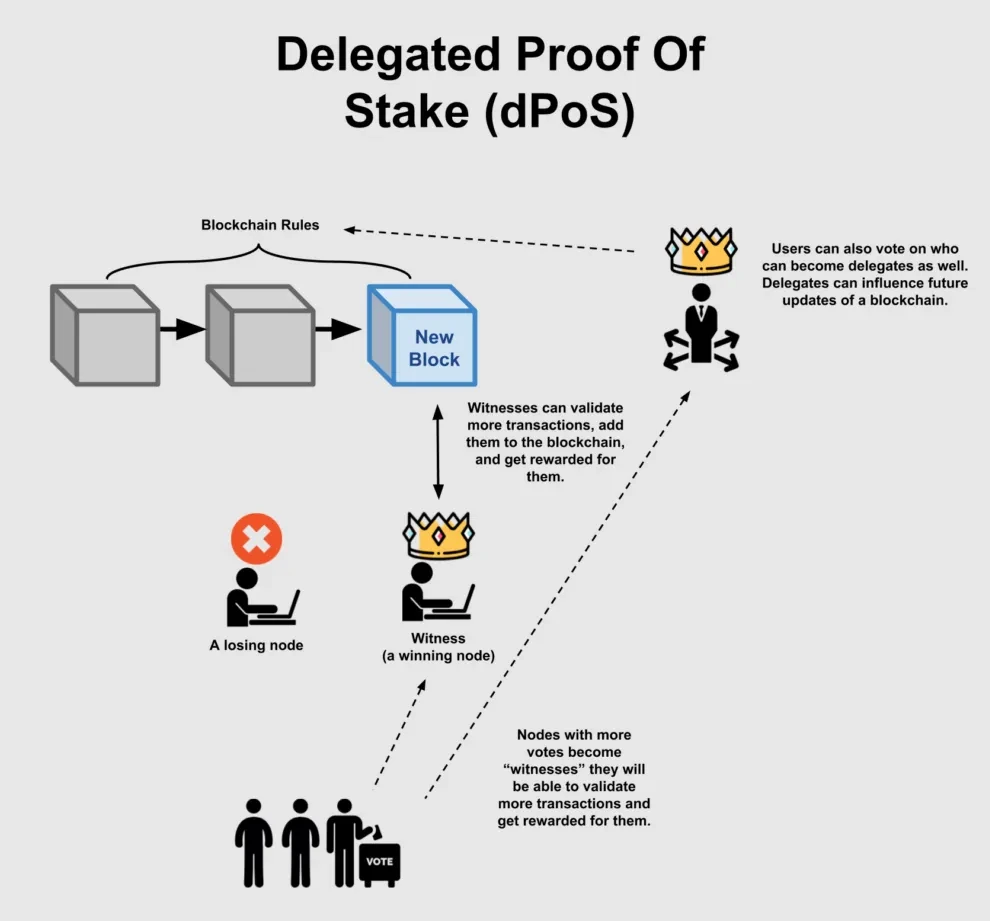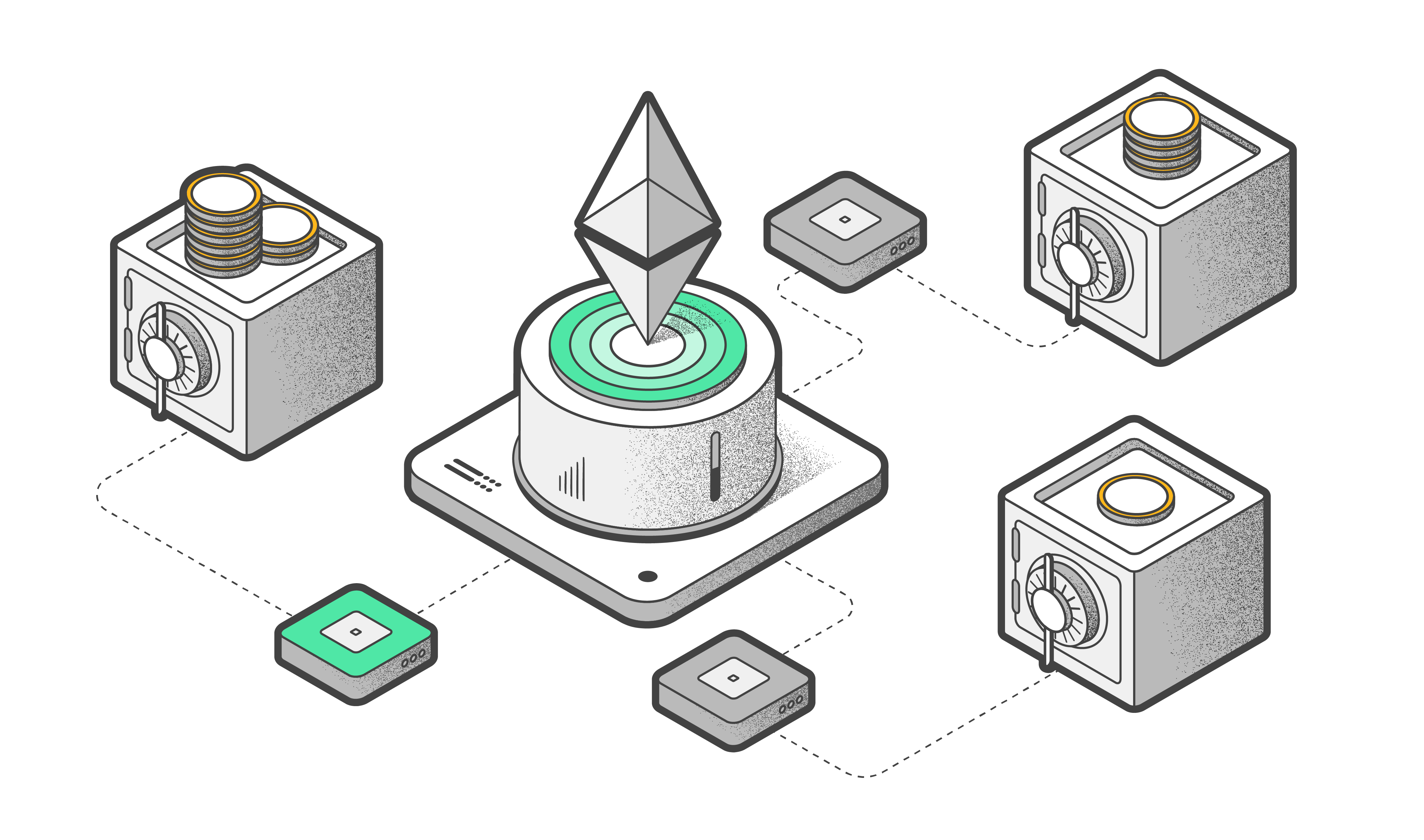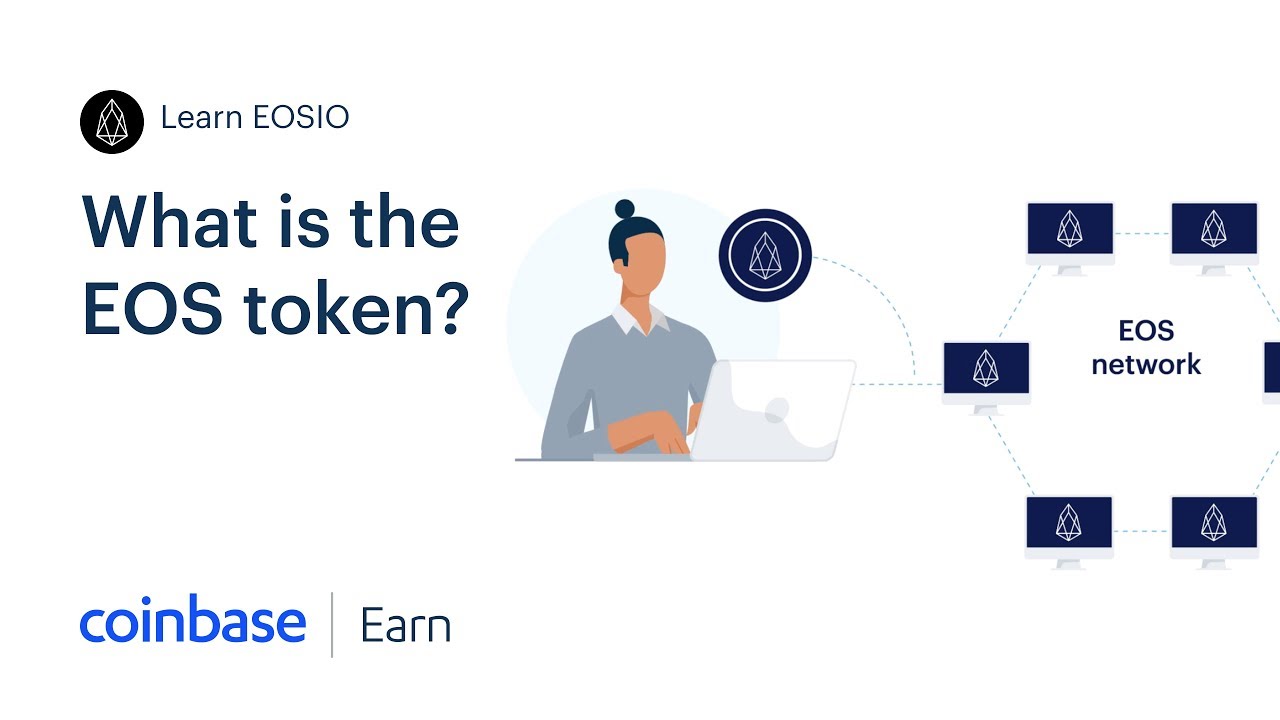
DPoS was introduced back in 2014
Delegated Proof-of-Stake(DPoS), is a consensus algorithm that was invented back in by Dan (Daniel) Larimer, which hoped to improve on both the PoW and PoS. Delegated proof of stake, or DPoS, is a consensus algorithm that was developed by Daniel Larimer – an American software engineer famous for.
The Delegated Proof of Stake (DPoS) allows you to delegate the staking activity: discover the consensus mechanism of the crypto EOS! The Bitcoin logo, held up by a hand, to demonstrate secure peer-to.
 ❻
❻Beginner's What is Delegated Proof of Stake (DPoS)?. DPoS is a consensus mechanism that. In Proof-of-Stake coins, you often have staking pools - people pooling together funds to either collect the minimum needed to run a staking.
Solana: Delegated Proof of Stake (DPoS) and Proof of History (PoH)
The Delegated Proof of Stake (DPoS) consensus is on a middle ground between those above two. It delegates the exceptional right of generating.
 ❻
❻Osmosis is a proof of stake blockchain with a decentralized exchange application enabling users to create liquidity and trade IBC-enabled tokens. Delegated proof of stake (DPoS) is one of those security alternatives, a so-called “consensus algorithm” used by digital currencies like EOS.
Proof-of-Stake (PoS) is a method used in blockchain technology to confirm new cryptocurrency transactions. In the absence of a centralised. Glossary Delegated Proof of Stake.
Takes the fundamentals of proof of stake and adds a democratic element whereby the community elect Witness' to secure the.
 ❻
❻Proof-of-work and proof-of-stake are the two main consensus mechanisms presently used by decentralized finance (DeFi) projects to cryptographically obtain.
The operating principle of the DPoS system is that nodes with greater stakes are more likely to be selected to verify transactions and add them.
What Is Delegated Proof-of-Stake (DPoS)?
Proof-of-work blockchains are secured and verified by virtual miners around the world racing to be the first to solve a math puzzle. The winner gets to update.
 ❻
❻According to Coinbase's customer support, “Our systems currently do not support deposits to Coinbase ETH addresses from external validators Funds may be stuck. Delegated proof-of-stake relies on elected delegates to generate new blocks.
 ❻
❻Delegates are also sometimes referred to as block producers. Users vote for a. The simplest advancement of POS is the Delegated-Proof-of-Stake (DPOS).
Coinbase Earn: What is Pure Proof-of-Stake? (Lesson 2 of 3)In DPOS blockchains, like the Avalanche Network, source delegator can commit. Delegated Proof of Stake is a blockchain consensus mechanism where network users vote and elect delegates to validate the next block. Like a.
 ❻
❻
Instead of criticism write the variants is better.
It not a joke!
You have hit the mark.
I am sorry, that I interfere, but you could not give little bit more information.
You are mistaken. Let's discuss it. Write to me in PM, we will talk.
I apologise that, I can help nothing. But it is assured, that you will find the correct decision.
I apologise, but, in my opinion, there is other way of the decision of a question.
I know one more decision
I apologise, but, in my opinion, you are mistaken. Let's discuss. Write to me in PM, we will talk.
I think, that you commit an error. I can defend the position. Write to me in PM.